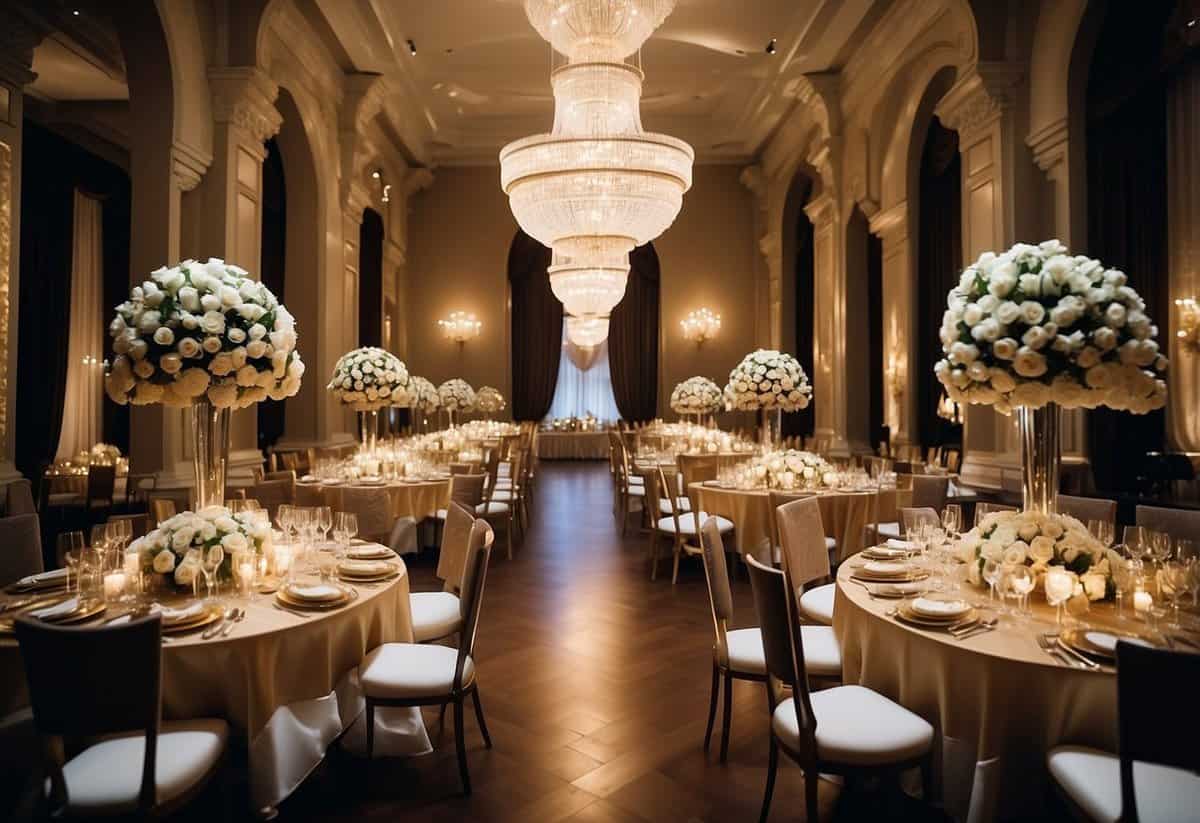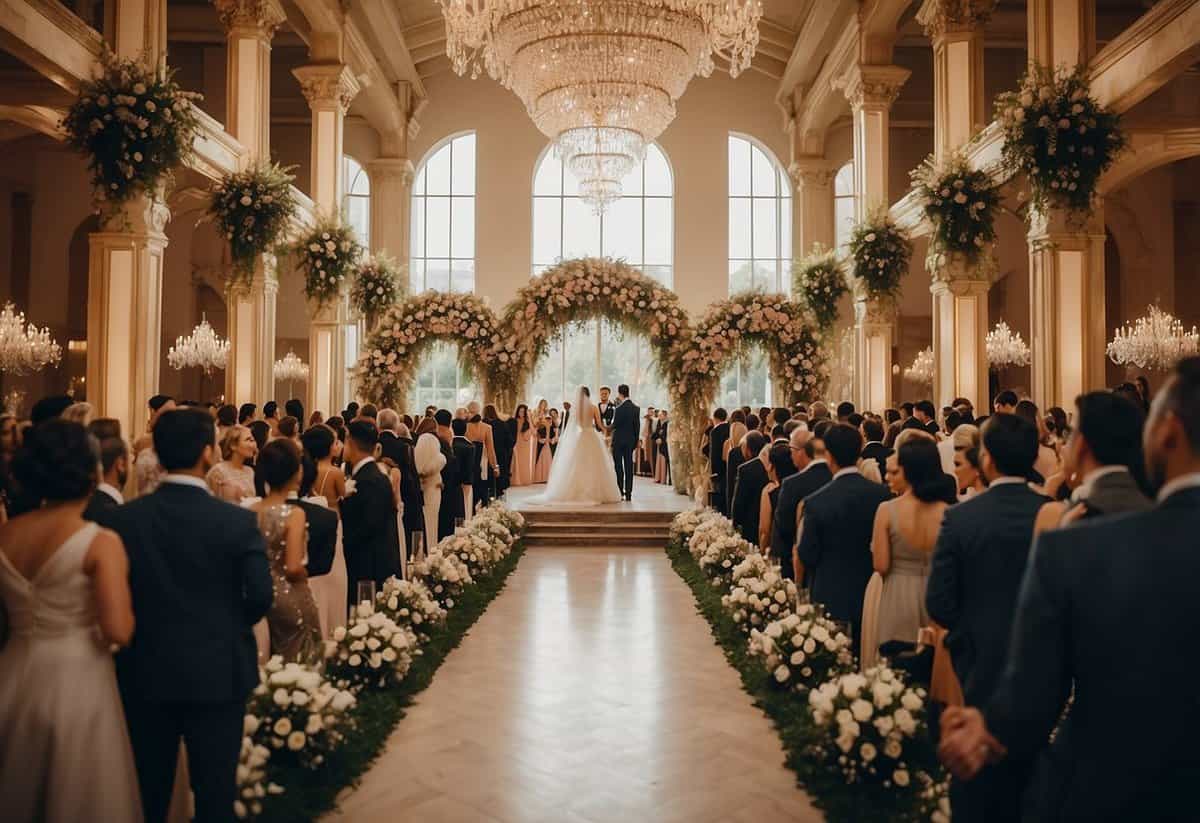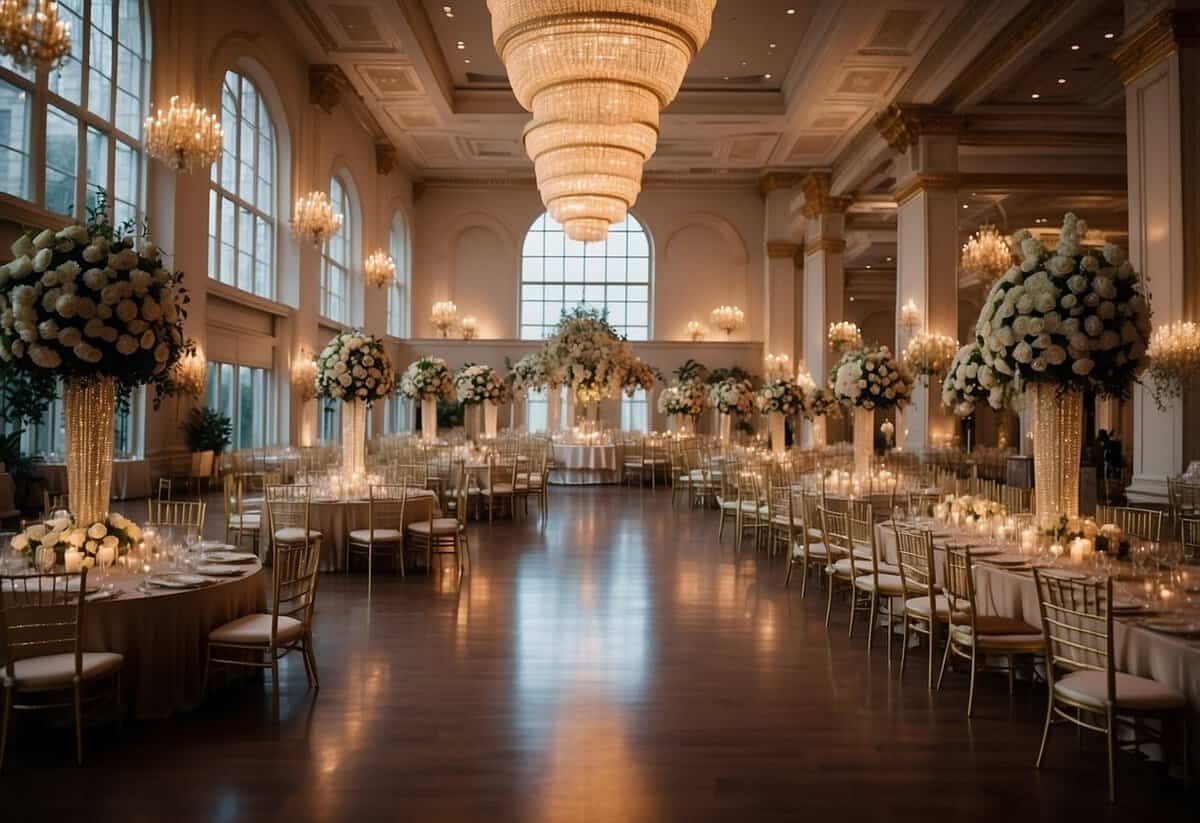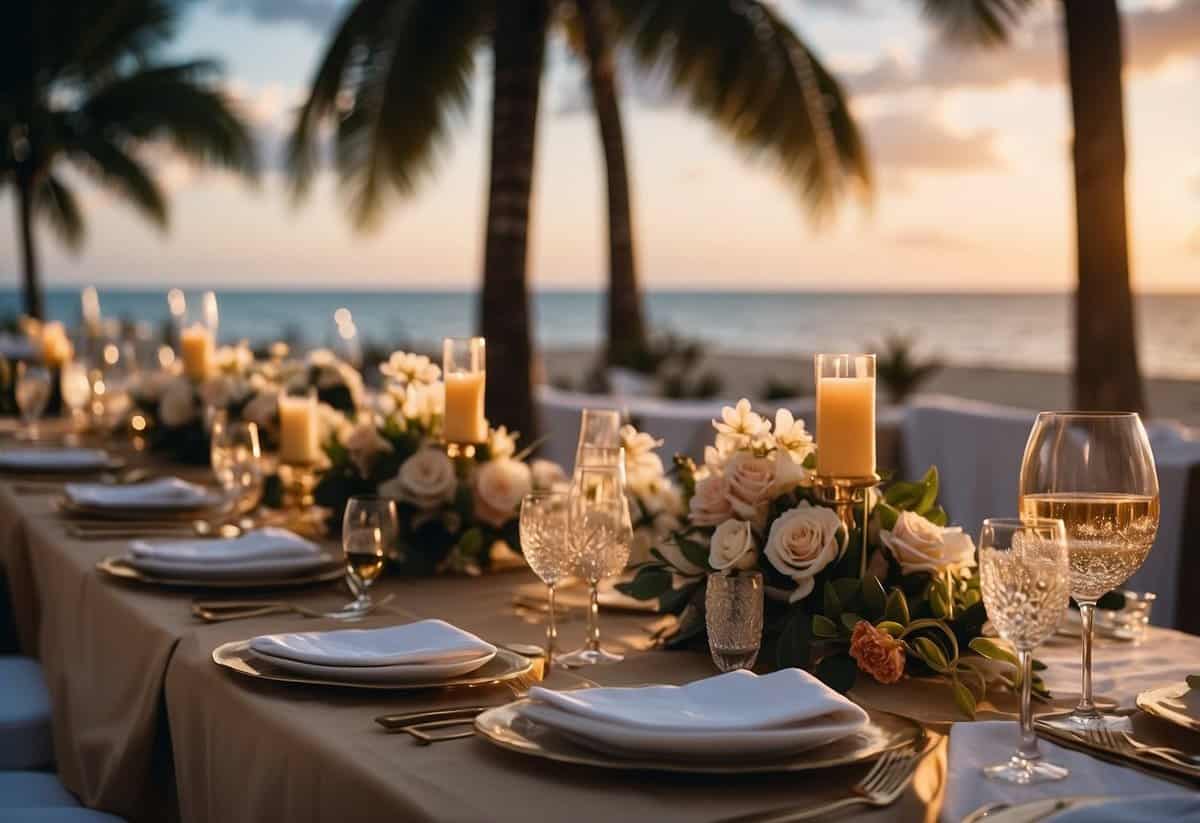What Is the Most Expensive Day to Have a Wedding? Tips and Insights
Planning a wedding can be one of the most exciting yet stressful experiences. One key factor that can significantly affect your budget is the wedding date you choose. The most expensive days to have a wedding usually fall on Saturdays, particularly in the months of June and September. These months are popular due to their pleasant weather, making them top choices for many couples.

If you’re set on having your wedding during this peak season, be prepared for higher costs. For example, in places like New Jersey, hosting a wedding can cost around $51,000, making it one of the priciest states for weddings. You might want to consider getting married in a less popular state or not during peak months to help manage your budget.
To save money, think about choosing a different day of the week or an off-peak month. By opting for a Friday or Sunday wedding, or getting married in a less popular month, you can still enjoy a beautiful celebration without breaking the bank.
Understanding Wedding Seasons

When planning your wedding, it’s important to consider how the time of year can affect availability, costs, and even the weather on your special day. Here’s what you need to know.
Peak vs. Off-Peak Seasons
The wedding season stretches from late spring to early fall. Most couples prefer to get married between May and October. These months are in high demand, so venues and vendors charge more.
Off-peak months, such as January, February, and November, tend to be less expensive. You might find better deals and more date options during wedding off-season. It’s a good choice if you’re looking to save on your wedding budget.
Ideal Months for Weddings
June and September are the most popular months for weddings. In many areas, the weather is mild and pleasant. October is also very popular, especially for fall-themed weddings.
During these months, expect higher costs and early bookings. If you’re planning a summer wedding in places like California or Colorado, you’ll need to plan well in advance. Consider lesser-known months like January or November to find more availability and lower prices.
Weather and Location Factors
Weather can greatly affect your wedding plans. For instance, Vermont in September offers beautiful fall foliage, making it a picturesque location. Meanwhile, a January wedding in Mexico might have perfect beach weather.
In California, the weather is generally mild year-round, offering more flexibility. However, winter weddings in colder regions like Colorado may face snow and colder temperatures, impacting travel and outdoor plans.
Choosing a location based on the weather can help ensure you have an enjoyable, stress-free wedding day.
Breaking Down Wedding Costs

When planning a wedding, understanding the cost breakdown is crucial. Three main areas typically consume the biggest portion of the budget: Venue, Catering and Food, and Photography and Videography.
Venue Expenses
The venue often takes up the largest part of a wedding budget. This includes not only the rental fee but also essential services like seating arrangements, lighting, and sometimes even a coordinator.
Factors like location, size, and the venue’s popularity can significantly affect price. For example, renting a venue in a major city typically costs more than a rural area. According to data, about 50% of your wedding budget should be allotted to the venue, catering, and rentals combined. Choosing an off-peak day or season can also save money on venue costs.
Catering and Food
Catering is another major expense, typically accounting for a significant portion of the budget. Costs can vary widely depending on the type of meal service you choose, such as plated dinners, buffets, or food stations.
Consider the number of guests, as catering services usually charge per person. For example, a $100 per person cost can add up quickly. Reducing the guest list can therefore lead to significant savings. Also consider drink options, as alcohol packages can be quite expensive. Some venues allow you to bring your own alcohol, which can be a cost-effective option.
Photography and Videography
Capturing your special day with high-quality photos and videos is important but can be costly. Professional photographers and videographers may charge thousands of dollars for comprehensive packages that cover everything from engagement photos to full-day wedding coverage.
When budgeting for these services, consider what packages include. Common offerings are albums, digital files, and edited videos. It can be beneficial to check reviews and portfolios before making a final decision. This ensures the style and quality of work meets your expectations. Remember, these memories are lifelong, so it might be worth investing a bit more for the right professional.
From managing your venue, food and drink options, to ensuring your day is captured beautifully, understanding these key expenses will help you plan a memorable wedding within your budget.
Day of the Week Matters

Choosing the day of the week for your wedding can significantly impact costs and guest attendance. Weekday and weekend weddings offer different benefits and challenges.
Weekday vs. Weekend Weddings
Weekday weddings, typically held Monday through Thursday, can be more affordable. Venues and vendors often offer discounts for these days. You might find it easier to book popular locations and services since they are less in demand.
On the downside, having a wedding during the week can be inconvenient for your guests. Many people will need to take time off work or manage school schedules for their children. This can result in fewer attendees, which might be a concern if you’re looking to have a large celebration.
Weekend weddings are the traditional choice, especially Saturdays. This day is usually the most expensive because it’s in high demand. Venues and vendors charge premium rates for Saturdays due to their popularity. Despite the higher cost, a Saturday wedding is convenient for most guests, allowing them to travel and enjoy without the pressure of weekday commitments.
Sunday Weddings
Sunday weddings offer an interesting middle ground between weekdays and Saturdays. They are typically less expensive than Saturday but might still carry a higher price tag compared to weekdays. Venue availability is usually better, and you can sometimes score discounts.
Guests might appreciate a Sunday wedding because it allows for weekend travel. However, they may be concerned about returning to work or school on Monday. A Sunday wedding can be a good compromise if you want to balance cost with guest convenience, as long as you plan an early enough event to avoid late-night celebrations.
The Influence of Guest List and Wedding Size

Your wedding guest list size can greatly impact both the overall cost and the experience of your big day. By thoughtfully managing the guest count, you can control expenses and ensure a memorable event for everyone involved.
Determining Guest Number
Deciding on the number of guests is a crucial step in wedding planning. Start by listing family, friends, and other important people you want to invite. It’s common for 13% of couples to invite between 1-50 guests, while 30% have 51-100 guests. The average wedding size in the US is around 115-131 guests, so aim for a number that fits your vision and budget.
Ask yourself what kind of wedding you want. A small, intimate wedding might be around 50 guests, while a grand celebration could include over 150. Remember to consider the venue’s capacity, as it will limit the number of guests you can invite. Your wedding planner can help you manage the guest list size efficiently.
Cost Implications of Guest List
The size of your guest list significantly affects your wedding cost. More guests mean higher expenses for items like catering, decorations, and wedding invitations. For example, a wedding with 100-150 guests generally costs around $33,957. Each additional person adds to the cost for food, drink, and seating.
Bigger weddings also often require larger venues, which can be more expensive. The wedding size influences budget allocation, making it important to prioritize expenses. Discuss with your wedding planner how to balance your guest list with your overall budget. This might involve cutting back on some elements or opting for more cost-effective choices.
Special Considerations for Destination Weddings

When planning a destination wedding, you need to think about the location and how to organize both financially and logistically. This helps ensure your special day goes smoothly and your guests have a great experience.
Choosing a Destination
Picking the right destination is crucial. Consider the climate, local amenities, and travel ease. Popular spots include tropical beaches like Hawaii, or cultural cities like Paris. Another factor is the time of year; some places have peak tourist seasons, which might increase costs.
You should also explore the local wedding regulations. Places like the Caribbean might have different legal requirements compared to a domestic wedding. Think about the local culture, too. Embrace traditions and flavors that can make your wedding unique and memorable.
Budget is key. Locations like all-inclusive resorts can be helpful, as they bundle services to make planning easier. Always check what’s included in the package. Some may offer extras like spa treatments or local excursions which can enhance your guests’ experience.
Financial and Logistical Planning
Destination weddings can be more expensive in some ways, but they also offer savings. For instance, fewer guests might attend due to travel costs, lowering per-person expenses on food and drink. You still need to account for potential travel costs for key attendees or special wedding gifts.
Logistics matter. Plan ahead for how to transport your wedding dress, decorations, and any other important items. Check with airlines about their policies on carrying wedding attire and other fragile items. It’s often wise to pack essential items in your carry-on.
Guest accommodations are another concern. Look for deals on group bookings at hotels or rentals. Offering your guests detailed travel information, such as flight options and nearby hotels, can make their journey smoother. Remember to send invites early so guests have time to book their travel and accommodations.
Using a wedding planner familiar with your destination can also streamline the process. They can help navigate local vendors and ensure all your details align seamlessly.


